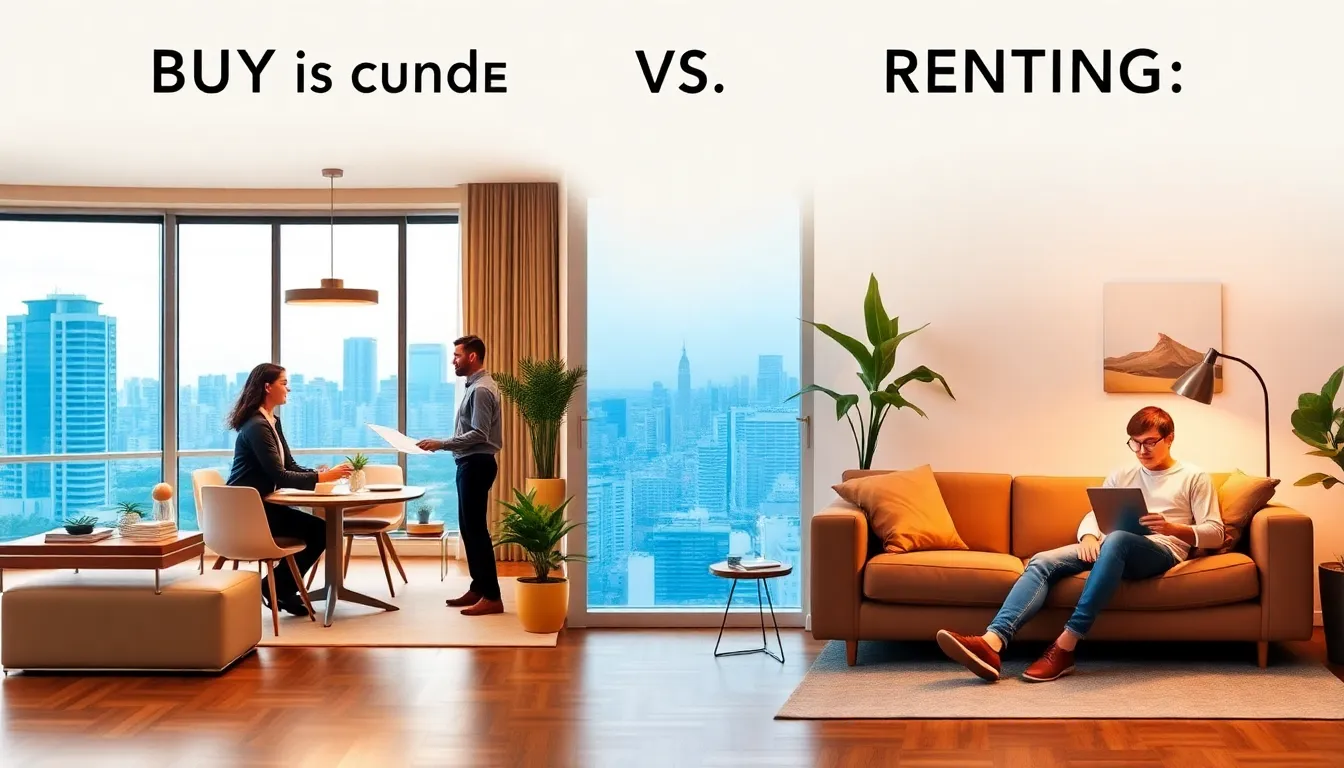Navigating the world of renting can feel like a game of hide-and-seek, but instead of finding a friend, tenants often stumble upon a minefield of confusion. Understanding tenant rights is crucial for anyone who’s ever signed a lease and thought, “What did I just agree to?” From quirky landlords to unexpected repair delays, knowing what’s legally yours can save headaches and maybe even a few dollars.
Tenant rights aren’t just legal jargon; they’re your shield against rental chaos. Whether it’s the right to a habitable home or protection from unjust eviction, these rights are here to ensure tenants aren’t left out in the cold—literally. So grab your popcorn, sit back, and let’s dive into the essential rights every tenant should know. After all, a well-informed tenant is a happy tenant, and who doesn’t want to be the hero of their own renting saga?
Table of Contents
ToggleOverview of Tenant Rights
Tenant rights are essential for a secure and fair rental experience. The right to a habitable home means landlords must maintain properties in livable conditions, addressing issues like plumbing, heating, and pest control. Protection from unjust eviction guarantees tenants cannot be removed without valid reasons and proper notice.
In many jurisdictions, tenants possess the right to privacy. Landlords must provide reasonable notice before entering rented properties, allowing tenants to maintain their personal space. Additionally, tenants often have the right to a written lease agreement, which outlines specific terms and conditions of the rental relationship.
Fair housing laws protect tenants from discrimination based on race, gender, religion, or familial status. They ensure everyone has equal access to housing regardless of personal characteristics. The right to organize also allows tenants to unite for collective action, notably in addressing common issues or negotiating lease terms.
Tenants might also seek repairs and maintenance without the threat of retaliation. Landlords cannot penalize tenants for requesting necessary repairs or reporting safety concerns. Understanding these rights enables tenants to advocate for themselves and ensures a smoother renting experience.
Many resources, such as local tenant associations and legal aid organizations, provide additional support. These organizations help tenants understand their rights and navigate disputes with landlords effectively. By being informed about their rights, tenants can approach their rental situations with confidence.
Understanding Lease Agreements

Understanding lease agreements is crucial for protecting tenant rights. A clear comprehension of the document fosters a positive renting experience.
Key Elements of a Lease
Key elements define the relationship between landlords and tenants. Lease duration specifies the length of tenancy, while rent specifics detail the amount due and payment methods. Security deposits often safeguard property against damage and outline return conditions. Maintenance responsibilities indicate which party handles repairs, ensuring clarity regarding obligations. Lastly, termination clauses address the process for ending the lease, including notice periods.
Common Lease Terms Explained
Common lease terms can significantly impact rental experience. Rent control limits how much rent may increase annually. Subleasing allows tenants to rent out their space under specific conditions. Eviction procedures specify the steps landlords must follow to remove tenants legally. Habitability clauses guarantee that the rental unit meets basic living standards. Right of entry provisions explain landlord access, generally requiring prior notice except in emergencies. Understanding these terms helps tenants navigate their rights and responsibilities effectively.
Tenant Responsibilities
Tenants hold specific responsibilities that contribute to a harmonious rental experience. Fulfilling these duties fosters better relationships with landlords and ensures compliance with lease agreements.
Paying Rent On Time
Timely rent payment represents a core tenant obligation. Payment schedules are often outlined in lease agreements, detailing due dates and acceptable payment methods. Consistently meeting these deadlines helps tenants avoid late fees or eviction notices. Most landlords appreciate communication if facing financial difficulties; discussing options may prevent misunderstandings. Each payment contributes to maintaining a positive rental history, which can influence future housing opportunities.
Maintaining the Property
Maintaining the property reflects another significant tenant responsibility. Keeping living spaces clean and undamaged benefits the tenant and respects the landlord’s investment. Routine upkeep includes reporting maintenance needs promptly; this action prevents small issues from escalating into more serious problems. Personalizing the space is allowed, as long as alterations meet lease terms. Regularly inspecting the property enables tenants to identify potential hazards, helping to sustain a safe and habitable environment.
Landlord Obligations
Landlords have specific duties that ensure a safe and pleasant living environment for tenants. Understanding these obligations can help tenants advocate for their rights effectively.
Providing a Habitable Living Space
Landlords must provide a habitable living space that meets safety and health standards. This includes functioning plumbing, heating, and electrical systems. Regular maintenance is essential for preventing conditions that could affect tenant well-being. Examples of required repairs include fixing broken windows or addressing pest infestations. Tenants should document any issues and report them promptly, allowing landlords to fulfill their obligations. Failure to maintain a habitable environment can result in legal consequences for landlords under local housing codes.
Respecting Tenant Privacy
Respecting tenant privacy remains a critical obligation for landlords. They must provide reasonable notice before entering rented properties, typically 24 hours. Emergencies may allow for immediate access without prior notice. Landlords should limit entry to necessary inspections, repairs, or showing the unit to potential renters. Tenants may request further clarification about entry policies to avoid misunderstandings. Privacy violations could lead to disputes or legal action, reinforcing the importance of clear communication between landlords and tenants.
Legal Protections for Tenants
Tenants benefit from various legal protections designed to safeguard their rights and ensure fair treatment in the rental market.
Anti-Discrimination Laws
Federal and state laws prohibit discrimination based on race, color, national origin, religion, sex, familial status, and disability. These protections ensure that all tenants have equal access to housing opportunities. For instance, landlords cannot refuse rental applications or impose different terms based on these protected classes. Complaints can be filed with the U.S. Department of Housing and Urban Development or local housing authorities if discrimination occurs. Ensuring landlords comply with these laws cultivates fair housing practices, promoting equity in rental transactions.
Security Deposit Regulations
Security deposits serve to protect landlords from potential damages but also come with regulations that safeguard tenant interests. Most states limit the amount landlords can collect as a security deposit, often capping it at one or two months’ rent. Upon lease termination, landlords must return the deposit within a specified timeframe, usually 30 days, providing an itemized list of any deductions made. Tenants maintain the right to dispute unfair charges, emphasizing the necessity of documenting the property’s condition before moving in. Understanding these regulations enables tenants to challenge unjust practices effectively, ensuring fair treatment concerning their security deposits.
Empowering tenants with knowledge about their rights and responsibilities is crucial for a positive renting experience. By understanding key aspects such as habitability, eviction protections, and privacy rights, tenants can navigate the rental landscape with confidence. Awareness of lease agreements and legal protections further equips them to advocate for fair treatment.
Maintaining open communication with landlords and fulfilling responsibilities like timely rent payment and property upkeep fosters a harmonious relationship. Utilizing available resources such as tenant associations and legal aid can also provide valuable support. Ultimately, informed tenants are better positioned to create a safe and equitable living environment.






